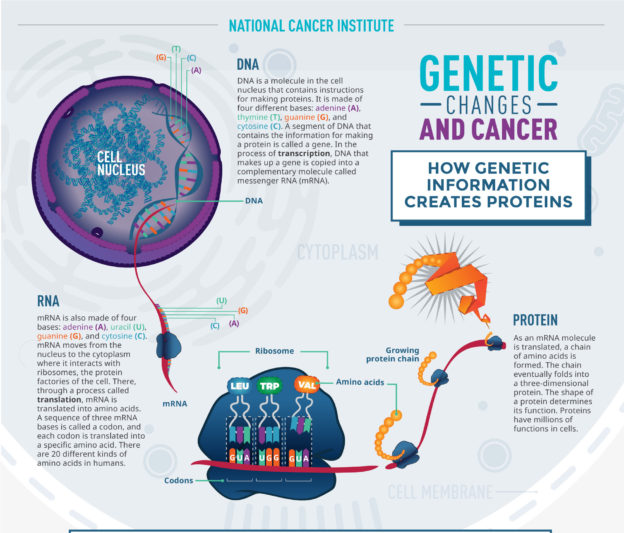Cancer is caused by genetic mutations. Although targeted therapy seeks to control cancer by targeting the proteins created by the genes, the vast number of mutated genes present in cancers could necessitate the development of thousands of drugs to effectively control all cancers.
Andrea Califano, a systems biologist at Columbia University has developed a new approach to the problem of cancer gene mutations. Drawing on his computer training, Andrea developed an algorithm to analyze the vast malfunctioning cancer gene networks. He was then able to identify specific transcription factors that act as bottlenecks in the cancer gene networks. Califano has called transcription factors as “master regulators.” Transcription factors are proteins that bind to DNA to activate transcription to proteins (aberrant proteins in the case of cancers). Targeting these transcription factors can minimize the number of drugs necessary to treat cancer.
Transcription factors have had the reputation of being hard to target and therefore undruggable, but recent advances have changed the situation. Califano, through his company, DarwinHealth, has begun a clinical trial at Columbia to test drugs involving 3000 patients. DarwinHealth is also licensing their tools to other researchers around the world to test against cancer.
References
- Jin Jing, et al. “Identification of Genetic Mutations in Cancer: Challenge and Opportunity in the New Era of Targeted Therapy,” Frontiers in Oncology, 16 April 2019 https://www.altmetric.com/details/60056433
- Khamsi, Roxanne. “Computing cancer’s weak spots.” Science 12 Jun 2020. Vol. 368, Issue 6496, pp. 1174-1177. https://science.sciencemag.org/content/368/6496/1174
- Lambert, Melanie, et al. “Targeting Transcription Factors for Cancer Treatment.” Molecules 2018, 23 (6), 1479. https://www.ncbi.nlm.nih.gov/pubmed/29921764
